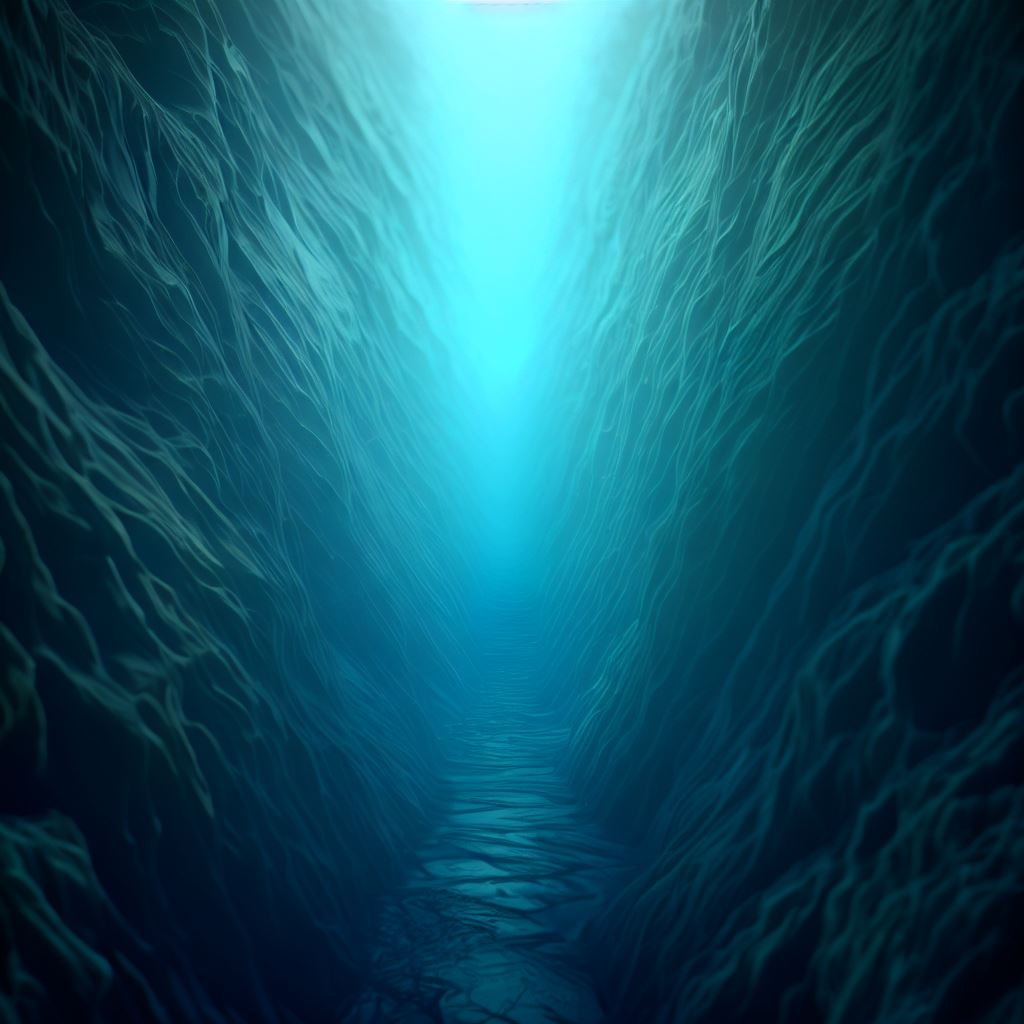In a groundbreaking discovery that has captivated the scientific community, a novel virus has been found in the abyssal depths of the Mariana Trench. This virus, known by its scientific identifier vB_HmeY_H4907, has ignited curiosity and raised questions about its potential implications on a global scale. Could it herald a new pandemic threat, or does it hold the key to unraveling the mysteries of life in the world's deepest oceanic chasms?
Situated a staggering 8,900 meters beneath the ocean's surface, vB_HmeY_H4907 belongs to the Suviridae family, a group of viruses exclusively inhabiting the vast expanses of Earth's oceans. What sets it apart is its classification as a bacteriophage, a type of virus that feasts on bacteria, a characteristic that is both intriguing and perplexing to researchers.
Min Wang, a virologist from the Ocean University of China and one of the study's authors, told Express UK that, "To our best knowledge, this is the deepest known isolated phage in the global ocean." These findings were disseminated through a statement released by the American Society for Microbiology, marking a significant milestone in the field of marine virology.

The fundamental question that looms large is the potential threat posed by vB_HmeY_H4907. While it hijacks and replicates within its host organism, it doesn't immediately result in the host's demise. This raises the age-old debate regarding whether viruses such as phages should be regarded as living organisms or complex molecular entities thriving by commandeering host bodies. The precise implications of this discovery remain shrouded in mystery.
One thing is certain at this juncture: vB_HmeY_H4907 does not pose a direct threat to humans, based on current research. Its behavior within the unique ecosystem of the deep sea remains enigmatic, but the substantial distance from human populations provides some reassurance.
The revelation of vB_HmeY_H4907 may be just the tip of the iceberg, according to the research team. They anticipate that the Mariana Trench, with its extreme environmental conditions, conceals a treasure trove of novel viruses and valuable insights into the complexities of life in the abyss. Wang states, "Extreme environments offer optimal prospects for discovering new viruses," hinting at the vast uncharted territories awaiting future scientific exploration.
As scientists continue to plumb the depths of vB_HmeY_H4907 and its deep-sea counterparts, the world watches with keen interest. Is this isolated phage a potential threat, a boon to scientific understanding, or perhaps both? Only time and further research will peel back the layers of mystery concealed in the ocean's most profound recesses and help us unlock the enigma of vB_HmeY_H4907.
Read full article here Su Y, Zhang W, Liang Y, Wang H, Liu Y, Zheng K, Liu Z, Yu H, Ren L, Shao H, Sung YY, Mok WJ, Wong LL, Zhang YZ, McMinn A, Wang M. Identification and genomic analysis of temperate Halomonas bacteriophage vB_HmeY_H4907 from the surface sediment of the Mariana Trench at a depth of 8,900 m. Microbiol Spectr. 2023 Sep 20:e0191223. doi: 10.1128/spectrum.01912-23. Epub ahead of print. PMID: 37728551. Same article was source of attached photos in this article





